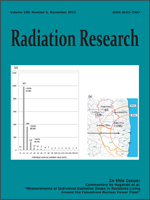Victims of a radiological attack or nuclear accident may receive high-dose, heterogeneous exposures from radiation to the chest that lead to lung damage. Our goal is to develop countermeasures to mitigate such injuries. We used WAG/RijCmcr rats receiving 13 Gy to the whole thorax to induce pulmonary fibrosis within 210 days. The angiotensin converting enzyme (ACE) inhibitor enalapril was evaluated as a mitigator of these injuries at two doses (18 and 36 mg/m2/day) and 8 schedules: starting at 7, 35, 70, 105 and 140 days and continuing to 210 days or starting at 7 days and stopping at 30, 60 or 90 days after whole-thorax irradiation. The earliest start date at 7 days after irradiation would provide an adequate window of time for triage and dosimetry. Survival after 35 days, as permitted by our Institutional Animal Care and Use Committee (IACUC) was also recorded as a primary end point of pneumonitis. Pulmonary fibrosis was evaluated using the Sircol biochemical assay to measure lung collagen. Our results indicated that a short course of either dose of enalapril from 7–90 days improved survival. However, pulmonary fibrosis was only mitigated by the higher dose of enalapril (36 mg/m2/day). The latest effective start date for the drug was 35 days after irradiation. These results indicate that ACE inhibitors can be started at least a month after irradiation for mitigation of pneumonitis and/or pulmonary fibrosis.
How to translate text using browser tools
18 August 2013
Enalapril Mitigates Radiation-Induced Pneumonitis and Pulmonary Fibrosis if Started 35 Days after Whole-Thorax Irradiation
Feng Gao,
Brian L. Fish,
John E. Moulder,
Elizabeth R. Jacobs,
Meetha Medhora
ACCESS THE FULL ARTICLE

Radiation Research
Vol. 180 • No. 5
November 2013
Vol. 180 • No. 5
November 2013




